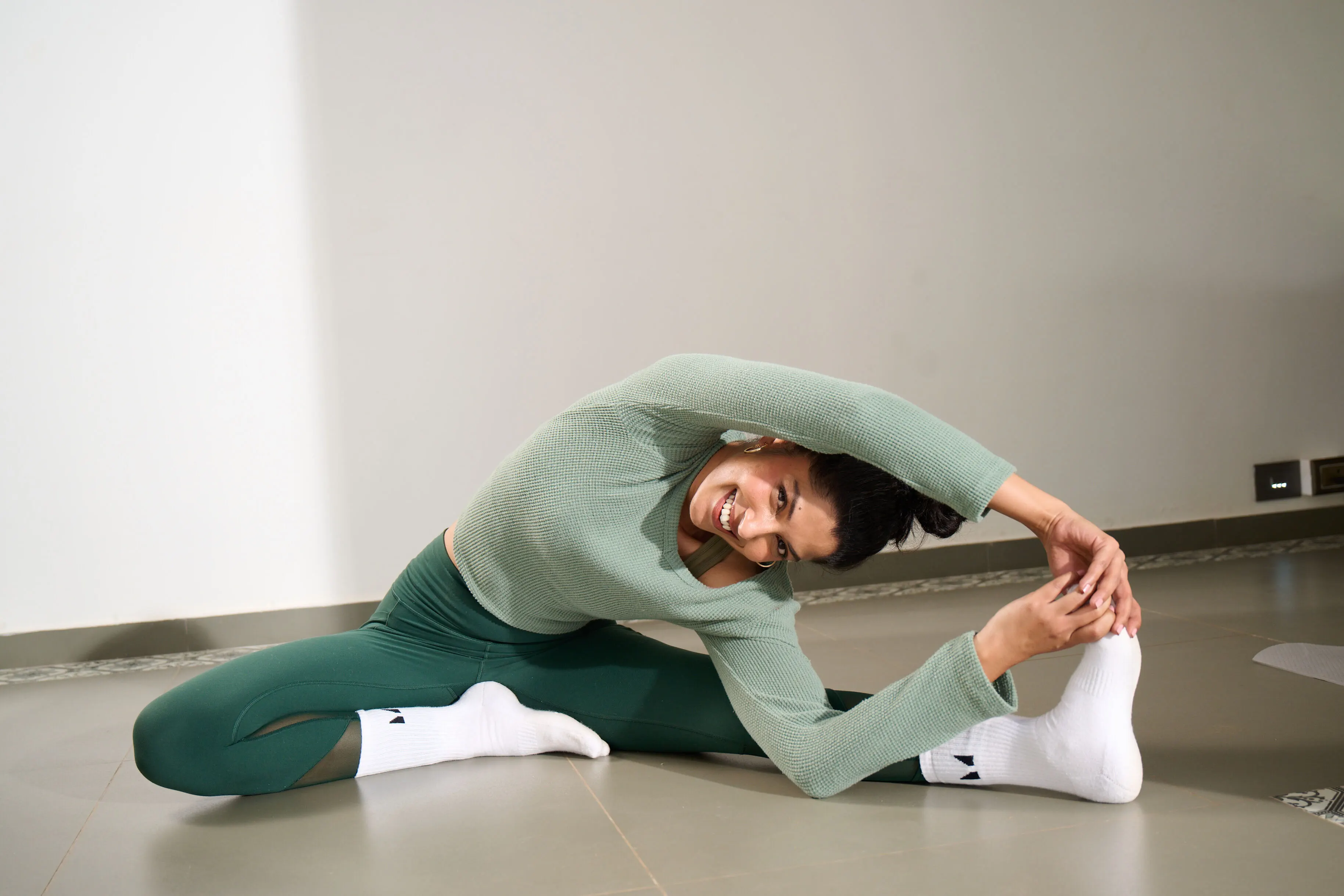A traditional style of yoga that originated centuries ago, Hatha yoga is widely practiced across the globe. The true nature, meaning and practices of Hatha yoga have not changed despite the introduction of other popular styles and the progression of yoga. In a literal sense, ‘Ha’ means sun and ‘tha’ means moon, and therefore Hatha yoga is known to balance the energies of the sun and the moon, the feminine and masculine, the yin and yang. In a certain sense, Hatha yoga plays true to the meaning of yoga, which is ‘to unite’ or ‘union’. Hatha yoga is the union of the two energies that exist within every living being.
What is the origin of Hatha yoga?
Hatha yoga dates back to the Legends of lord Shiva, who is fondly called Adinatha by the Nath sects. But it was only in the 11th CE that many hatha texts were complied and shared. Hatha yoga focuses on starting with yoga posture practice. It is believed when one gains mastery over postures, they can gain mastery over the mind. How this happens brings us to the practices of Hatha Yoga. Hatha yoga focuses on the breath as an integral tool to bring about a mind-body balance. Unlike Ashtanga Yoga, which is based on the 8-limbed approach, Hatha yoga focuses on six aspects, namely Asanas (yoga postures), Pranayama (breathing exercises), Mantra (chanting), Mudra (gestures), Kriyas (cleansing techniques) and Bandhas (locks).
Swami Swatmarama, a 15th-century sage compiled Hatha Yoga Pradipika where he advised starting with the physical practices. His belief was that people will find it easier to master the mind through the body, rather than trying to purify one’s personality and habits through observances like the yamas and niyamas. The cleansing techniques or Shat Karmas are an important step in purifying one’s mind and body, leading to better health. The Hatha Yoga Pradipika says purification of the body leads to the purification of the mind, encouraging spiritual development.
By doing these practices, the free flow of prana is encouraged in the body. Prana is the life force or energy that flows from the Muladhara Chakra (the root center) to the Sahasara Chakra (the crown center). This energy flows via energy channels called nadis. The prominent nadis are the Ida (the feminine, moon channel) and Pingala (the masculine, sun channel). Hatha yoga practices also work on balancing the Ida and Pingala nadis.
“The mind is the lord of the senses, but the breath is the lord of the mind.”
-Swami Swatmarama, Hatha Yoga Pradipika
Swami Swatmarama goes on to say that mastering yoga postures strengthens the mind, encouraging self-discipline. He describes it with a wonderful example. Swami Swatmarama says, “Sit in Padmasana, Lotus Posture, for fifteen minutes. That is self-discipline. Why do you fight with the mind first? You have no power to wrestle with the mind, yet you wrestle with it, thereby creating a pattern of animosity towards yourself.”
What are the benefits of Hatha Yoga
Hatha yoga is popular for its immense physical and mental health benefits. On a mental and emotional level, Hatha yoga makes the mind stronger, balances emotions and improves mood. It improves focus and concentration, thereby improving productivity. Stress, anxiety and depression reduce. Prana flows freely keeping the chakras stimulated and improving creativity. One’s awareness and mindfulness improves, leading to better decision making and clarity of thought.
Physically and physiologically, Hatha yoga strengthens the body immensely. Flexibility and mobility on joints, muscles and tissues gets better. Blood circulation and oxygen supply improves, leading to fewer blockages and less fatigue. Toxins and impurities get eliminated. The nervous system is more balanced and relaxed, leading to less stress. Even the respiratory system functions better. Weight loss is more sustained and healthy.

Hatha yoga practices
Traditionally there are 84 yoga asanas. 84 is a number used over and over again in spiritual practices, representing a connection between the individual practitioner and the universe. A few popular yoga asanas are the Ardha Matsyendrasana, Sirsasana, Halasana, Mayurasana, Paschimottanasana, Natrajasana and Padmasana. Over the years there have been variations added to suit different levels of practitioners. One can begin with Hatha yoga for beginners, which includes easier versions and then slowly progress to more advanced Hatha yoga postures.
A typical Hatha yoga class starts with centering and pranayama. The best online Haha yoga classes will be designed to take you through a flow that includes all types of practices. The teacher should ideally take you through an energizing pranayama at the beginning, followed by a few warm-ups and then Surya Namaskars. A Hatha yoga sequence will include all types of poses such as twists, backbends, forward bends, balancing postures and inversions. A good certified yoga teacher will end the session with a cooling or balancing pranayama like Nadi Shodhana and a few minutes of relaxation, such as Yoga Nidra.
Hatha yoga lifestyle
The Hatha Yoga Pradipika acts as a beautiful guide to how one can like a balanced yogic lifestyle. Hatha Yoga outlines for us an optimal, healthy and balanced daily routine, the need for physical exercise as well as practices for the mind (meditation). It throws light on the importance of getting enough rest and relaxation, and the need for a mindful approach to one’s diet. While some of these factors are challenging for many to adapt in today’s modern world, there are suitable variations and modifications one can choose to follow.
Concluding thoughts
If following some of these suggestions, practices and routine is challenging, an experienced Hatha yoga teacher can help you. Join a live online yoga class like Shvasa, where you will learn the various practices and philosophy of Hatha Yoga which you can incorporate in your everyday life.















.jpg)












%201.png)

%201.svg)






%201.svg)